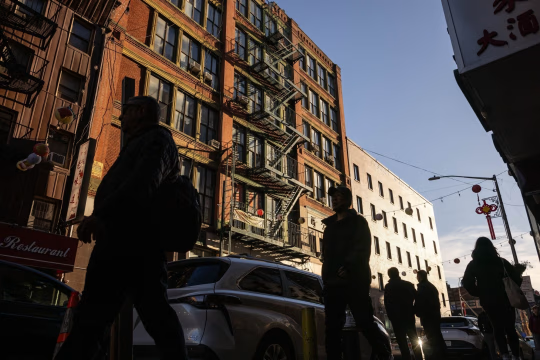New York City’s rental landscape shifted significantly this week as a new law took effect changing who pays broker fees when signing a lease, the Wall Street Journal reports.
While many renters are celebrating reduced upfront costs, some landlords have already begun raising rents—sometimes dramatically—to adjust to the new rules.
The Fairness in Apartment Rental Expenses Act (FARE Act), which went into effect Wednesday, requires landlords—not tenants—to cover the full broker fee when a real estate agent is involved in listing and leasing an apartment. Traditionally, these fees—often equal to 10% to 15% of annual rent—were paid by the tenant, adding thousands of dollars to the cost of moving into a new home.
For renters like Rita Liu, a 27-year-old Brooklyn resident who spent much of her savings on fees when she moved in 2023, the new law is a relief.
“If broker’s fees aren’t a factor now, moving would be a lot more feasible,” she said. Liu and others see the shift as a win, even if rent increases follow. “Landlords are going to jack up the rents no matter what.”
Economists estimate that the law could reduce the upfront cost of moving by more than 40%. Kenny Lee, a senior economist at real estate platform StreetEasy, described the change as “a big win for renters,” particularly those with limited cash on hand.
However, early data and listings suggest that some property managers are quickly adjusting by testing higher monthly rents. On StreetEasy and other platforms, brokers began advertising two-tier pricing in the days leading up to the law’s implementation—offering one rate before the law took effect and a higher one after.
For example, a one-bedroom apartment in Brooklyn’s Park Slope neighborhood was listed at $3,300 per month before the law went into effect, with a note stating the rent would rise by $495 afterward. Jason Haber, co-founder of the American Real Estate Association, predicted “the biggest rent increase in the history of New York City.”
Despite this surge, analysts expect the market to stabilize over time as landlords and tenants adjust to the new norm. The initial spike in rent may reflect landlords’ efforts to immediately recoup lost broker fee expenses. But longer-term dynamics, including supply and demand, are likely to determine whether higher rents persist.
The Real Estate Board of New York, a leading industry group, attempted to block the measure through a legal challenge, arguing it interfered with private contracts. That lawsuit was unsuccessful, clearing the way for full enforcement of the law.
Still, not all renters may benefit in the long term. Higher monthly rents could ultimately outweigh initial savings, especially for those who remain in the same apartment for years. Since future rent increases are often based on the current rent level, renters could face compounding costs.
Currently, New York City renters are already navigating one of the tightest and most expensive housing markets in the country. The city’s vacancy rate has dropped to a record low of 1.4%, and median rents continue to rise. A recent report from rental site Zumper found that the median rent for a two-bedroom apartment in New York reached $5,560—a 17.5% increase from the previous year.
John Walkup, co-founder of real estate data firm UrbanDigs, noted that the new law could further accelerate these trends.
“The FARE Act could light a fire under that pre-existing growth,” he said.
The FARE Act aligns New York City with other major US cities that have already banned tenant-paid broker fees. Boston remains one of the last large cities where such fees are still common, though legislative proposals there are gaining momentum.










The latest news in your social feeds
Subscribe to our social media platforms to stay tuned